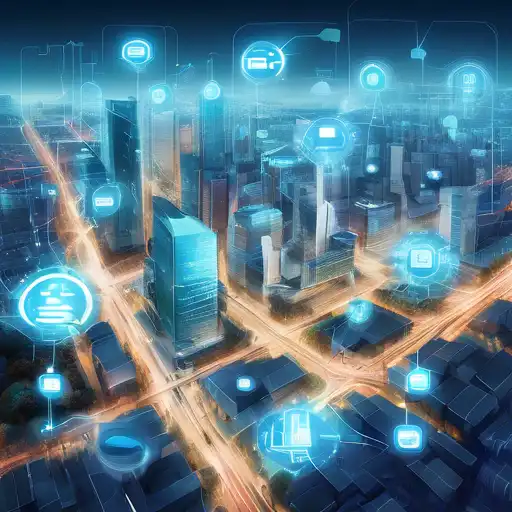The Impact of IoT on Urban Development
The Internet of Things (IoT) is revolutionizing the way urban spaces function, turning them into smart cities. These cities leverage IoT technology to enhance the quality of life for their residents, improve sustainability, and streamline urban services. From smart traffic management systems to energy-efficient buildings, IoT is at the heart of this transformation.
Key Components of Smart Cities Powered by IoT
Smart cities utilize a variety of IoT devices and technologies to collect and analyze data. This data is then used to optimize city operations and services. Some of the key components include:
- Smart Traffic Lights: These adjust in real-time to traffic conditions, reducing congestion and improving air quality.
- Waste Management Systems: IoT-enabled bins signal when they are full, optimizing collection routes and frequencies.
- Energy Grids: Smart grids adjust energy supply based on real-time demand, reducing waste and lowering costs.
- Public Safety: Surveillance cameras and sensors can detect unusual activities, enhancing security.
Benefits of IoT in Smart Cities
The integration of IoT into urban infrastructure offers numerous benefits, including:
- Improved Efficiency: Automated systems reduce the need for manual intervention, making city operations more efficient.
- Enhanced Sustainability: IoT helps in monitoring and reducing energy consumption, contributing to environmental conservation.
- Better Quality of Life: From reduced traffic jams to cleaner air, IoT makes cities more livable.
- Economic Growth: Smart cities attract businesses and tourists, boosting the local economy.
Challenges and Solutions
Despite its benefits, the implementation of IoT in smart cities faces challenges such as data privacy concerns and high initial costs. However, solutions like robust cybersecurity measures and public-private partnerships can help overcome these hurdles.
Future Prospects
The future of smart cities looks promising, with advancements in IoT technology paving the way for more innovative solutions. As cities continue to grow, IoT will play a pivotal role in ensuring they remain sustainable, efficient, and livable.
For more insights into how technology is shaping urban spaces, check out our article on Digital Transformation in Urban Planning.
